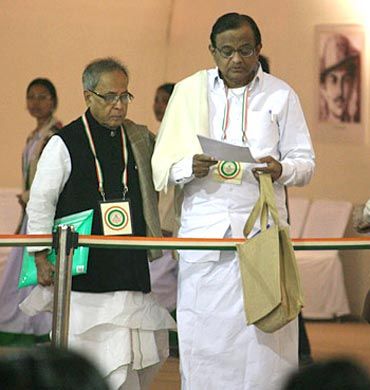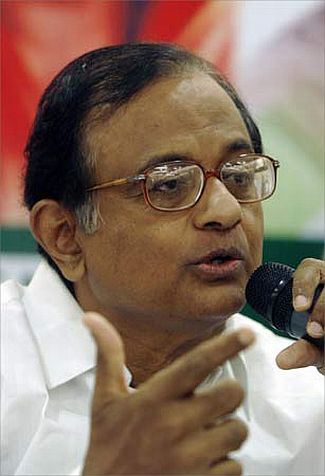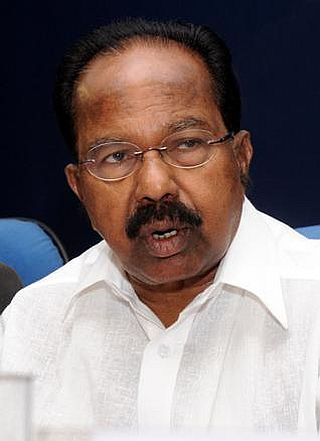
The ministerial reshuffle will not lead to better governance and has only kept the window open for another one after the UP election, says Sheela Bhatt.
The reshuffle of Prime Minister Manmohan Singh's ministers is a redistribution of power within the Congress party. It is a realist mid-size reshuffle done to handle the power tussle within the Congress party.
Will it benefit the nation by having better governance? Of course, the answer will be in the negative.
This reshuffle has kept the window open for another one after the Uttar Pradesh election.
The Dravida Munnetra Kazhagam-held portfolio of textiles has been retained by the Congress; it will return it if and when DMK leader M Karunanidhi nominate his choice of minister.
The top four ministries -- finance, home, defence and external affairs -- have not seen any change. It means Finance Minister Pranab Mukherjee and Home Minister Palaniappan Chidambaram have proven equal in their covert politics against each other.
If Omita Paul, Mukherjee's confidante and senior officer at the finance ministry, came under attack in the media and elsewhere, Chidambaram was embarrassed by the report that suggested that his ministry was trying to snoop on the finance minister's office.
The power tussle between the wily Chidambaram and the richly-experienced Mukherjee has not produced any change in the Cabinet.
Please ...

Defence Minister A K Antony has maintained his image as a clean and political-savvy minister, but sources say "being non-corrupt" is not necessary or a priority virtue to run the home ministry where pressures of security-related issues and managing the complex policing services requires toughness and a kind of haughty temperament in difficult times.
According to reliable government sources, Chidambaram wanted finance, but Mukherjee refused to move out of North Block.
The prime minister refused to allot Chidambaram external affairs because he wanted someone who will remain "100 percent his man", would listen to and follow his views on managing international relations. S M Krishna has proved his credentials and reliability in this regard.
From that limited point of view, Dr Singh and Mukherjee managed their own priorities by imposing the status quo in two crucial ministries.

But it seems this reshuffle lacks ambition of that nature.
When asked why the reshuffle did not kindle high hopes, a senior Congress minister said, "You people think (Congress party President) Sonia Gandhi and Dr Singh will select ministers from 1.2 billion Indians. The ministry has to be formed from elected members of the UPA (United Progressive Alliance). It is known that the Indian polity has a paucity of talent. What can Mrs Gandhi do about it?"

The old Congress party is slowly shifting towards the new, upcoming, Congress, at last. Rahul's leadership is showing its impact through this reshuffle.
Jairam Ramesh, the minister considered close to Rahul, has become India's minister for rural development, which has more than a Rs 80,000 crore (Rs 800 trillion) annual budget to distribute to the states and manages many important government programmes.
Expectedly, Ramesh will make a noise in the media about funding to non-Congress states and ensure that the Congress-backed rural programmes hit the headlines.
Ramesh has perfected the art of grabbing headlines, justifiably or otherwise. So, will he bring rural issues centre-stage?
Last year, it was rumoured that if and when Rahul Gandhi decides to join Dr Manmohan Singh's Cabinet he will head the rural development ministry.
Ramesh's choice for the ministry is a signal to non-Congress parties: Don't take the Centre's funding for granted. Show the accounts and results of development that have taken place with central funding.
On this account, there is already tension between New Delhi and the Narendra Modi government in Gujarat; Mayawati's government in UP and Nitish Kumar's administration in Bihar are also complaining about it.

Rajiv Shukla, the new minister of state for parliamentary affairs, is also close to the Gandhi family.
Singh and Deora's induction cannot be unconditionally appreciated. Induction of such youth from elite families does not send the right message to the youth of India looking forward to politics as an option.
Rahul Gandhi has been working hard to attract youth for the last five years. But it appears his strategy is failing to support the rise of young people who do not have the backing of rich and powerful parents.
By default, one great relief has come to our lives.
Former Chief Election Commissioner Manohar Singh Gill, who was largely responsible for the Commonwealth Games fiasco, has been dropped from the ministry. It was a political shame for the Congress party that such an important Constitutional authority came to politics after retirement and even enjoyed enormous power as minister.
Nothing can be as unethical as a judge, Comptroller and Auditor General and election commissioner being given a political posting after retirement. It is good riddance that Gill is going home.